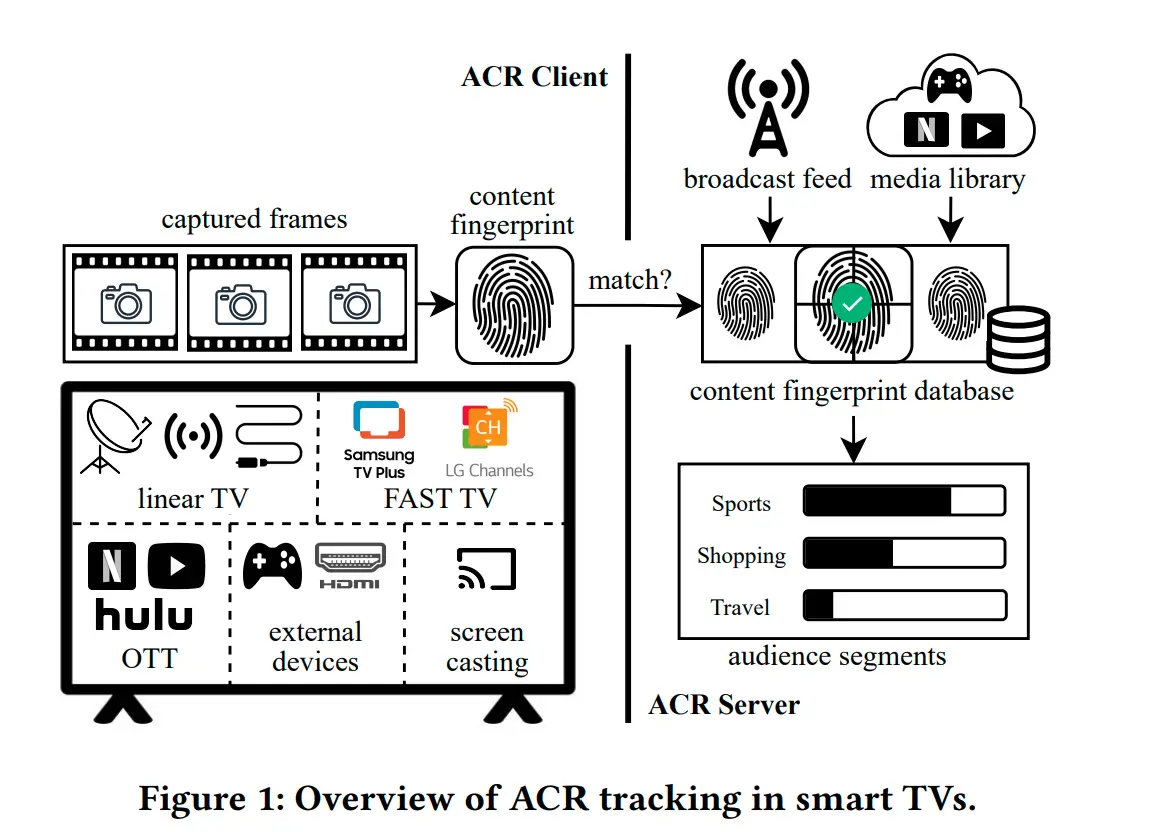
Image Credit: SafeNetIoT
A new study has revealed the extent to which smart TVs use Automatic Content Recognition (ACR) technology to track users’ viewing habits. The research, conducted by a team of scientists from University College London, Universidad Carlos III de Madrid, and the University of California, Davis, found that ACR is used to collect data on what people are watching, regardless of whether it is linear TV, streaming content, or even content from external devices connected via HDMI.
ACR works by periodically capturing the content displayed on a TV’s screen and matching it against a content library to detect what is being displayed. This information is then used to create audience segments, which can be used for targeted advertising. As the researchers noted, “ACR is essentially a Shazam-like technology for audio/video content on the smart TV,” functioning to monitor viewing habits for advertising and profiling purposes.”
The researchers found that ACR is implemented by all major smart TV manufacturers, including Samsung and LG. They also found that ACR is active even when the TV is used as a “dumb” external display, and that opting out of tracking does not always stop the data collection.
“ACR tracking raises unique concerns,” said Dr. Patricia Callejo, one of the study’s authors. “For instance, ACR tracking when the TV is being used as a ‘dumb’ external display raises privacy concerns. Similarly, ACR tracking of copyrighted third-party content raises intellectual property concerns.”
The study also found that there are differences in how ACR works across the UK and the US. In the UK, ACR is not active when streaming content from third-party apps such as Netflix and YouTube. However, in the US, ACR is active even when streaming content from the platform streaming app.
The researchers are calling for more transparency from smart TV manufacturers about the use of Automatic Content Recognition. They also recommend that users be given more control over the technology.
Related Posts:
- LINE Data Breach Expands: Investigation Uncovers More Compromised Data
- Smart TV is easily hacked: someone watching you while watching TV